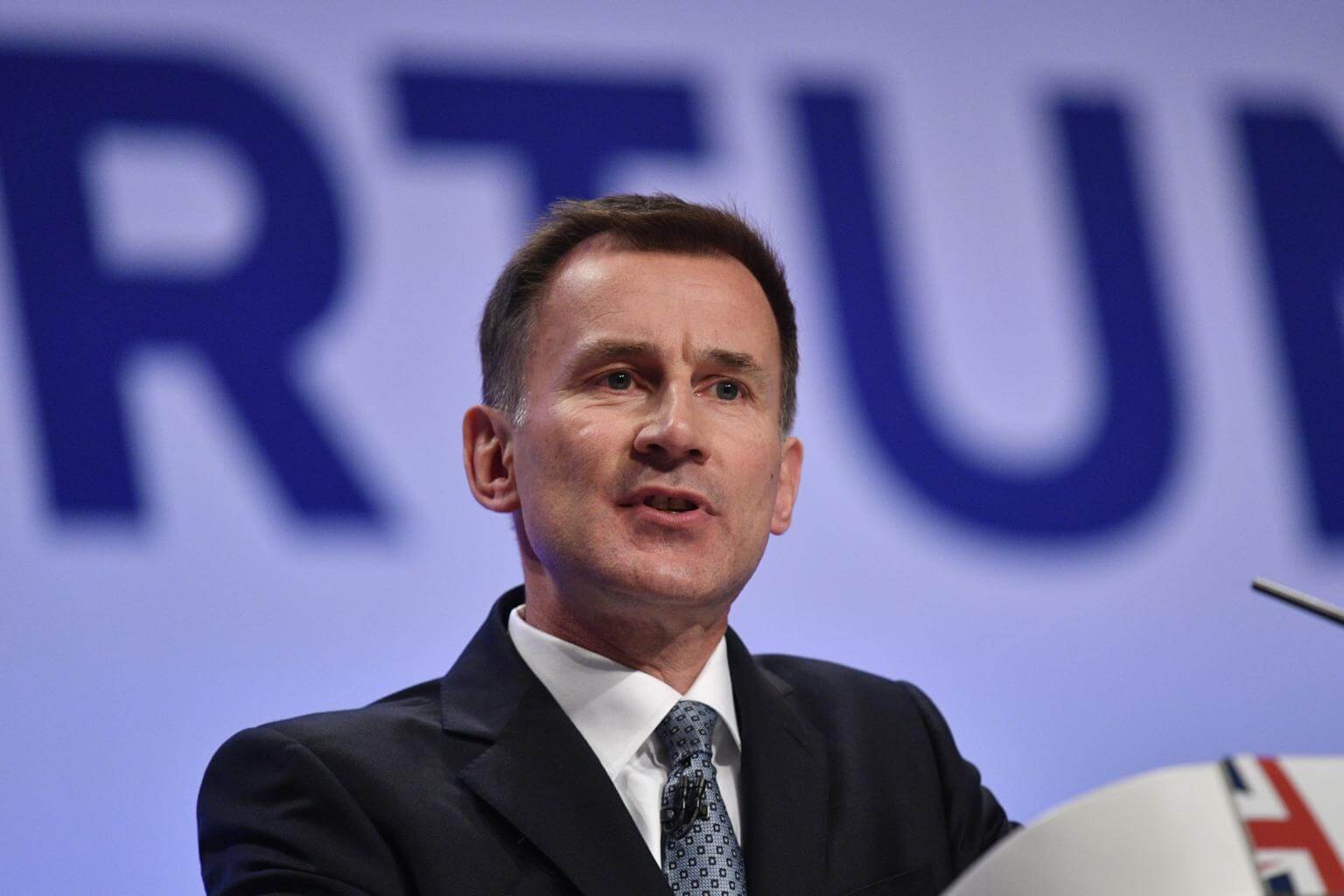UK, Dutch accuse 'pariah state' Russia of hacking chemical watchdog
Sign up now: Get ST's newsletters delivered to your inbox

Britain's Foreign Secretary Jeremy Hunt speaks on the first day of the Conservative Party Conference in Birmingham, on Sept 30, 2018.
PHOTO: EPA-EFE
LONDON/THE HAGUE (REUTERS, AFP) - Britain and the Netherlands on Thursday (Oct 4) accused Russia of running a global campaign of cyber attacks to undermine democracies, including a thwarted attempt to hack into the chemical weapons watchdog while it was analysing a Russian poison used to attack a spy.
In some of the strongest language used by the West since the Cold War, Britain said Russia was acting like a "pariah state". The accusations were backed by other Western countries including the United States, which said Moscow must pay a price.
Russia denied what its Foreign Ministry spokeswoman called a "diabolical perfume cocktail" of allegations by someone with a "rich imagination". But the accusations deepen Moscow's isolation at a time when its diplomatic ties with the West have been downgraded over the poisoning of an ex-spy in England and it is under US and EU sanctions over its actions in Ukraine.
The British and Dutch accusations were unveiled as NATO defence ministers gathered in Brussels to present a united front to their Cold War-era foe.
"This is not the actions of a great power, these are the actions of a pariah state," British Defence Secretary Gavin Williamson told reporters.
US Defense Secretary Jim Mattis said he agreed with the British and Dutch assessments. Russia must pay a price and a number of response options were available, he said.
EU officials said in a statement Russia's "aggressive act demonstrated contempt for the solemn purpose" of the Organization for the Prohibition of Chemical Weapons (OPCW).
Dutch authorities said they had disrupted an attempt to hack into the Hague-based OPCW in April. At the time, the watchdog was investigating both the poison used to attack ex-spy Sergei Skripal in Britain and chemical weapons which the West says were used in Syria by Russia's ally President Bashar al-Assad.
Four Russians arrived in the Netherlands on April 10 and were caught three days later with spying equipment at a hotel located next to the OPCW headquarters, the Dutch military intelligence agency said.
The men had planned to travel on to a laboratory in Spiez, Switzerland used by the OPCW to analyse samples, Dutch Major-General Onno Eichelsheim said. They were expelled to Russia.
The Netherlands released copies of passports of the four men, which identified them as Alexey Minin, Oleg Sotnikov, Evgenii Serebriakov and Aleksei Morenets, all in their 30s or 40s. Reuters was not immediately able to contact them.
Russian military intelligence "is active here in the Netherlands ... where a lot of international organisations are (based)," Eichelsheim said.
AGGRESSOR
Earlier on Thursday, Britain released an assessment based on work by its National Cyber Security Centre (NCSC), which cast Russia's GRU military intelligence agency as a cyber aggressor which used a network of hackers to sow worldwide discord.
The GRU, Britain said, was almost certainly behind the BadRabbit and World Anti-Doping Agency hacking attacks of 2017, the hack of the US Democratic National Committee (DNC) in 2016 and the theft of emails from a UK-based TV station in 2015.
"The GRU's actions are reckless and indiscriminate: they try to undermine and interfere in elections in other countries," said British Foreign Secretary Jeremy Hunt. "Our message is clear - together with our allies, we will expose and respond to the GRU's attempts to undermine international stability."
The GRU, now officially known in Russia by a shorter acronym GU, is also the agency Britain has blamed for sending two men to England to poison former GRU agent Sergei Skripal with a chemical weapon sprayed on his door.
Skripal, his daughter and a police officer fell seriously ill; a woman later died after her partner found the poison in a discarded perfume bottle. Russia says the two men Britain blames for the attack were tourists who twice visited Skripal's home town for sighteseeing during a weekend trip to England, a story Britain says is so far-fetched as to prove Moscow's culpability.
Hunt said the hacking attempt at the OPCW was further proof of Moscow's role in the poisoning.
After the Skripal poisoning, dozens of Western countries launched the biggest expulsion of Russian spies working under diplomatic cover since the height of the Cold War. Moscow replied with tit-for-tat expulsions of Westerners.
In a separate case on Thursday, a Norwegian court extended for a second two-week period the detention of a Russian citizen suspected of spying on Norway's parliament. Norway arrested Mikhail Bochkaryov on Sept 21 as he was about to fly out of the country. Moscow says he is a Russian parliamentary staff member and has demanded Oslo lift the "absurd charges".
Britain said the GRU was associated with a host of hackers including APT 28, Fancy Bear, Sofacy, Pawnstorm, Sednit, CyberCaliphate, Cyber Berkut and Voodoo Bear.
The United States has sanctioned GRU officers including its chief, Igor Korobov, in 2016 and 2018 for attempted interference in the 2016 US election and cyber attacks.
Australia and New Zealand also backed the British findings.
"By embarking on a pattern of malicious cyber behaviour, Russia has shown a total disregard for the agreements it helped to negotiate," Australia's Prime Minister Scott Morrison said.
Canada said on Thursday it, too, was targeted by Russian cyber attacks, citing breaches at its centre for ethics in sports and at the Montreal-based World Anti-doping Agency.
"The government of Canada assesses with high confidence that the Russian military's intelligence arm, the GRU, was responsible" for these cyber attacks, the foreign ministry said in a statement.


